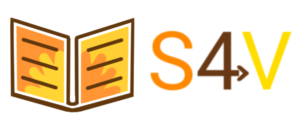Design Thinking at Kamiti Medium Prison
School for a Village’s most recent program was a four-day design-thinking bootcamp at the Kamiti correctional facility in Kenya. Planning for the Kamiti boot camp began in August of 2023, when Mr. Mongi noted his interest in the Kamae bootcamp’s curriculum. We approached it with a particular focus on the sustainability and longevity of the teachings, thoroughly informing instructors of their roles and preparing the community with the skills necessary for continuing the curriculum’s teachings into the future.
After communicating with the school’s instructors about the students’ baseline coding and computer literacy knowledge, S4V aimed to purchase Arduino products that would be donated to the school after the bootcamp, and our organization successfully reached its budgeting goals just prior to the start of the program.
The bootcamp began with our team members meeting with the highest chief available, the second in charge, who expressed interest in teacher training, although protocol prevented him from joining the program directly. The first day’s instruction introduced students to the Marshmallow Challenge, which required brainstorming and collaboration to build the tallest and strongest structures possible from a small set of materials. Our on-site volunteers noted high success rates amongst student teams at Kamiti and considered their designs to be the most intricate of any they had seen so far. The tallest designs reached up to 18, 19.5, and 20 centimeters! This challenge generated a great deal of student interest and paved a smooth transition into the first topic: Empathize. Official group introductions began and, as the 25 students learned more about our volunteers, they also got to see the available electronics and Arduino resources for the first time. They viewed examples of electronic design and innovation which kickstarted their excitement for the work they would be doing over the next few days.
On Day 2, following students’ prayer sessions, Kevin explained the basics of Arduino and gave a motivational talk, which was recorded for further use in additional organizations. Then, in the final two days, the community began creating their projects and started to become familiar with coding. One student was particularly tech savvy, which proved to be a great help when dealing with bugs in the students’ work. Since the group was not allowed access to phones or the internet, the community came together to resolve issues that otherwise would have involved an internet search, all while using a coding language similar to C++.
The lessons continued to develop along with the students’ skills, covering teachings from clearly defining problems to constructing thorough ideas for seeking relevant solutions. The boot camp came to an end with two final Arduino projects, for which students shared four boards. After successfully completing the bootcamp and their final projects, each student earned a certificate congratulating them on their newfound abilities, and our volunteers left proud of how far they had all come.
In future boot camps, School for a Village looks forward to working more closely with schools to create the most efficient schedules for the students’ alloted time and the volunteers’ availability. Our team is actively working to increase engagement during lesson plans by incorporating more hands-on elements and topics that are of personal interest to the students involved. We also hope to achieve the funding needed to provide snacks during bootcamps to create a more comfortable learning environment, while regularly incorporating student feedback into the lesson formats. Overall, the boot camp was received incredibly well by students, staff, and volunteers alike, and our team is excited to carry the experience with them into future projects, just as the Kamiti students will carry their newfound knowledge, continuing on to apply their new skills and share their insights with those around them.
